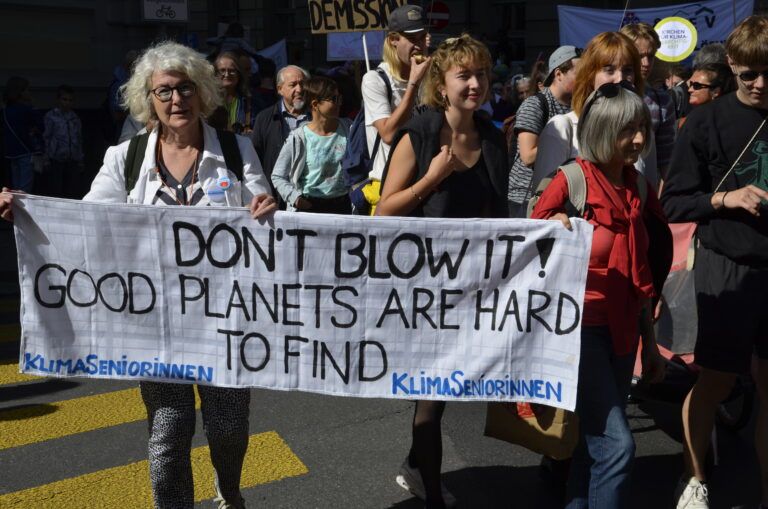(Brussels, April 10, 2024) – In a landmark decision, the European Court of Human Rights (ECtHR) has ruled that Switzerland violated human rights by failing to take sufficient action to mitigate the impact of climate change, Climate Rights International said today. The judgment by the Court’s Grand Chamber, issued on April 9, found that the Swiss authorities’ process of putting in place the relevant domestic regulatory framework, including its failure to quantify, through a carbon budget or otherwise, national GHG emissions limitations, violated the plaintiff’s right to a private and family life under article 8 of the European Convention on Human Rights (ECHR).
Critically, the court affirmed that parties to the ECHR have a positive obligation to protect individuals from serious adverse effects on their life, health, well-being, and quality of life arising from the harmful effects and risks caused by climate change. The binding legal ruling applies to the 46 countries in the Council of Europe, and is likely to influence other regional and national courts.
“This decision marks a pivotal step in the growing recognition that climate change is inextricably linked with human rights, imposing positive obligations on countries to act,” said Lotte Leicht, Advocacy Director at Climate Rights International. “All 46 Council of Europe members now need to take urgent steps to take strong action to protect people from the impact of climate change.”
The case was filed by Klimaseniorinnen, an association of more than 2,000 Swiss women, most of whom are over the age of 65, and five individual women, alleging that Switzerland had failed to take reasonable steps to reduce its greenhouse gas emissions. The plaintiffs claimed that that failure violated their rights to life and to privacy and a family life under the Convention. In an important step, the court found that the association had standing to bring a case alleging violation of the rights of its members due to climate change, a decision that is important for cases beyond this one.
To protect the rights to privacy and family life under article 8 the court held that each party to the Convention must “undertake measures for the substantial and progressive reduction of their respective GHG emission levels, with a view to reaching net neutrality within, in principle, the next three decades,” noting that, for this to be genuinely feasible, “immediate action needs to be taken and adequate intermediate reduction goals must be set for the period leading to net neutrality.”
While the court did not specify what immediate action Switzerland must take, the decision makes clear that legislative and policy judgments must be assessed against the best available science and the 1.5 degree target agreed in the Paris Agreement, Climate Rights International said.
The historic ruling was issued just as data documenting record temperatures for ten consecutive months was published, with scientists warning that climate change could move “into uncharted territory.”
“There can no longer be any doubt that the urgency of climate change imposes obligations on states and national courts to reduce CO2 emissions in line with the science to protect individuals from related human rights harms,” said Leicht. “Climate change is the biggest global human rights crisis of our time. The time to act is now.”
Photo Credit: Klimaseniorinnen demonstration. By Hadi via Wikimedia CC0.







